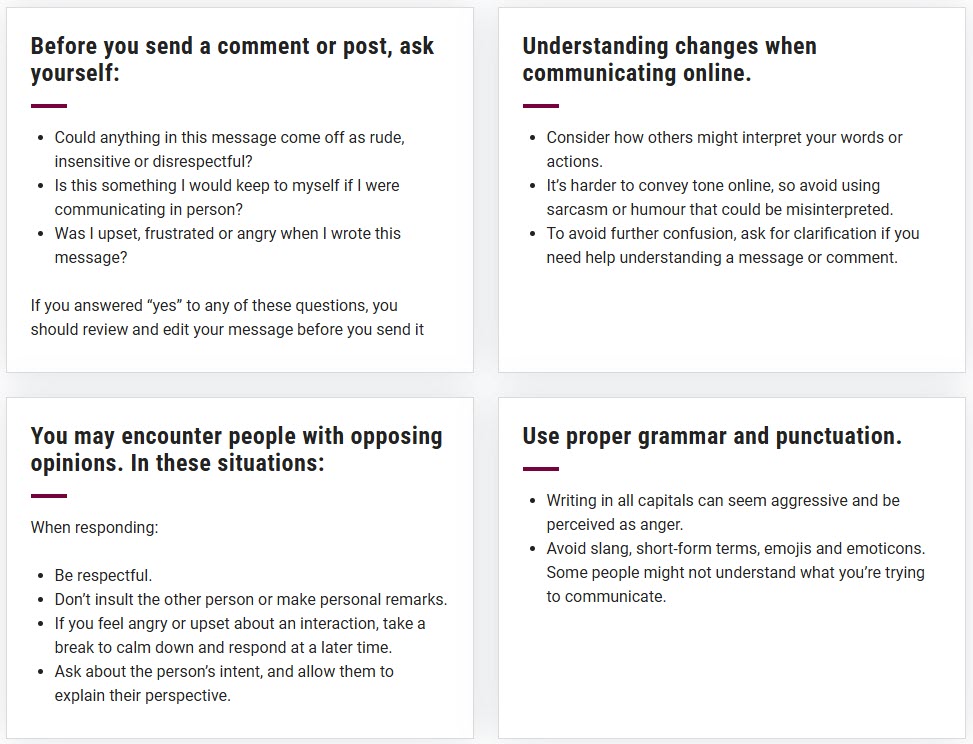Communicate with Respect
Student Guidelines for Communicating in Digital Courses
Digital communication lacks verbal and non-verbal cues such as intonation, gestures, stance, and facial expressions that are a regular part of face-to-face communication. The absence of these cues can quickly lead to misunderstandings in the digital environment. Netiquette is all about the code of behavior established for communicating online. The rules for netiquette will vary, depending on the context (formal/informal); the people (known/unknown to each other) and the activity.
Here are some tips and suggestions for good communication. A handout of this entire page is also available: PDF Handout



